Advice
Preparing your riding competition season
30 January 2023
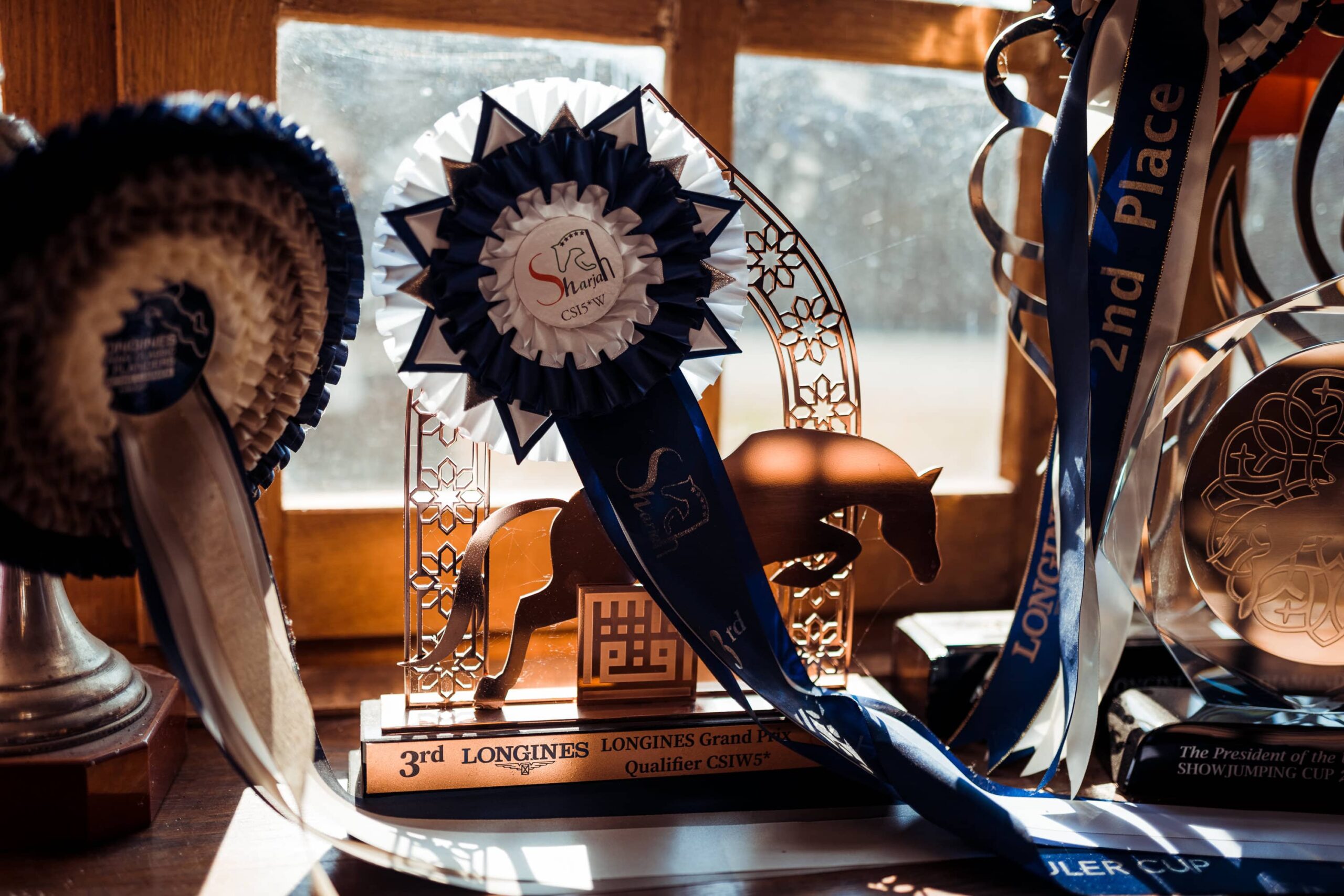
Advice
30 January 2023

As the end of winter draws closer, so does the start of the competition season. So, after several months of Sunday lie-ins, it’s time to get up at the crack of dawn. But while you may have been yearning to get back in the saddle, it has to be properly prepared for a seamless transition to the arena. Here’s our advice to get your 2023 riding competition season off to a flying start.
This is one of the best ways to stay focused all season long. Is your main goal to compete in a championship event? Or do you want to change category? Whatever it is, it will be your goal to reach. But to make it more achievable, try to split your ultimate aim into several sub-objectives. If you do this, you’ll have a clear roadmap to follow with each milestone constituting smaller key stages.
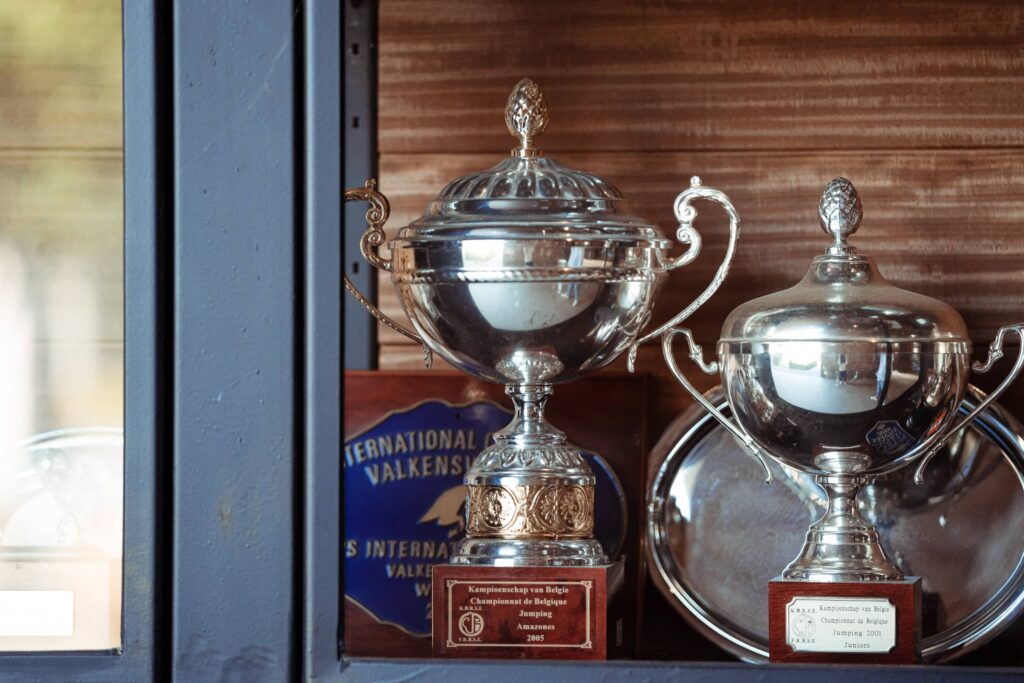
Your riding competition season will be planned out and it’ll be easier for you to organise yourself on daily basis. But don’t forget, nothing is set in stone! You should know how to adjust to the ups and downs of riding. Your horse’s well-being is your prime concern, so stay tuned to him or her throughout the season.
Once your riding competition season is clear in your head, you can plan your training sessions with your horse. This schedule should build up gradually. That why thinking ahead to each competition event is crucial because it’s key to spreading out your workload. If your horse has lost some muscle tone after a period of rest, make resolving this your priority. Perfecting your technique comes second.
Also, mix up your training sessions. Some can target building up muscles while others may focus on stretching. Read our article on the subject for some helpful hints.
[Stretching: What stretching exercises can do with your horse? ]
If you can, make use of outdoor spaces where you stable your horse. Outdoor exercise is a big boost to your horse’s mood and its posture which will naturally be pointing downwards.
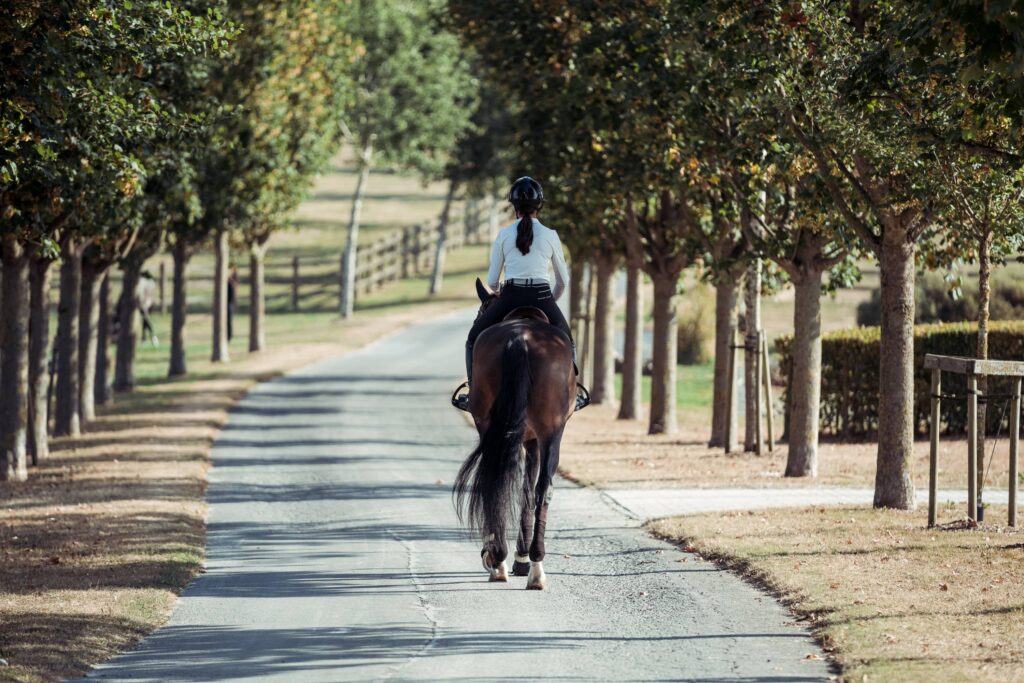
That said, the training plan isn’t just for your horse. It’s best if you have one too! Firstly it helps you to comfortably switch between work and home life and the time you spend at the stables. There’s no denying it, riding is a sport that is very time-consuming.
Also, doing other sports can be good for your mind and body. Lower body joints and core strength are two areas which are strongly affected by riding. Building the muscles in other parts of your body, cardio workouts or yoga can help your riding technique. There are many physical activities that are a good match with riding.
There’s no point reinventing the wheel when it comes to the day before a competition. Normally, most of the work has been done in the past weeks and months. Ideally, you should be checking that you’ve the basics covered and getting your horse into its best possible condition. This last workout must be tailored to the type of impending event. Depending on where you are in the season, you should adapt your preparations accordingly. There may be more things you have to work on just before a championship event compared to when the season starts.
Marie Pellegrin recommends going over the basics just before a competition. In her opinion, it’s the best way to hit the ground running on a show-jumping course. Check out her tips in her interview:
You should carefully check your horse tack before your competition season starts. Make sure your gear is in a good state and still fits your horse. If not, call the professionals for assistance. Our experts are at your disposal to conduct any tests and saddle fitting sessions.
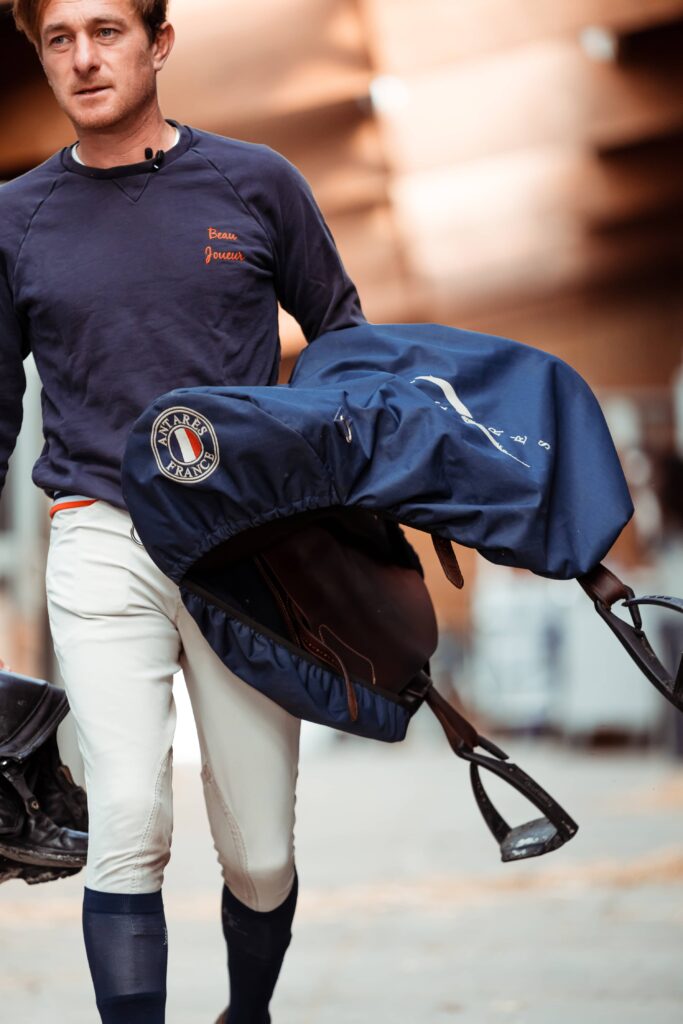
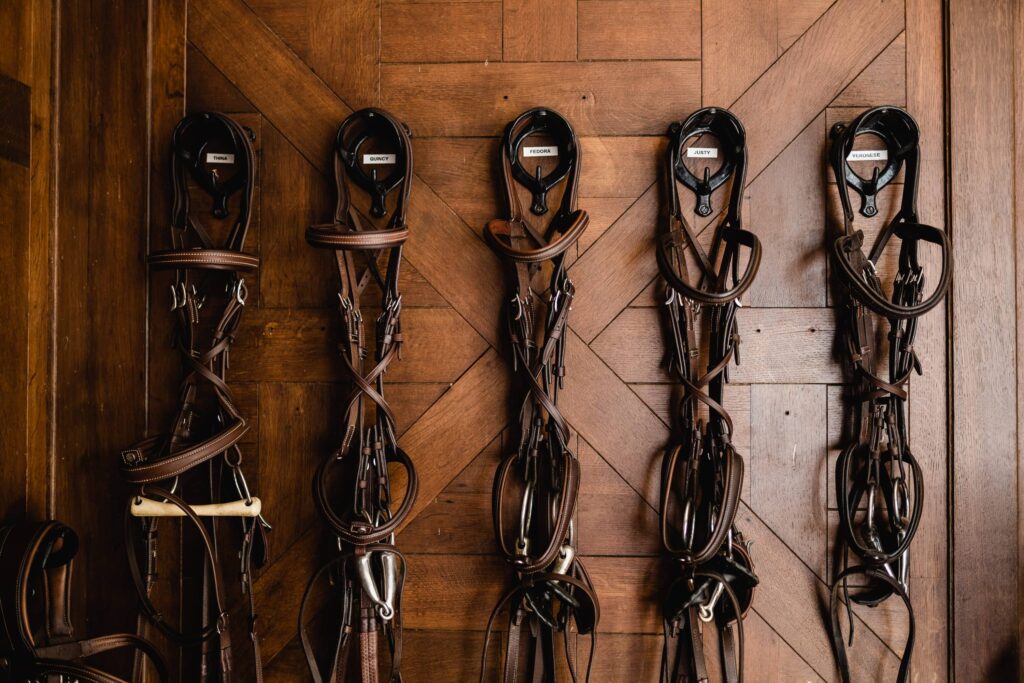
Prepare your tack just prior the competition, ideally several days before. That way, you won’t forget anything on the day as rushing is your worst enemy when you are competing. As well as you and your horse’s equipment, don’t forget your horse’s health records and by that, we mean an up-to-date records. If you haven’t already done it, quickly check the due dates for vaccines. So you don’t forget your horse’s health records, put the booklet somewhere obvious the day before, or directly it in the truck, if you can.
Remember, the best tool for real scatterbrains (but not uniquely) is a check list!
Also, do cast a quick eye over FFE/FEI regulations as they change regularly, especially for aspects concerning bits and authorised tack such as nosebands and reins, etc.
Riding competitions and stress frequently and unwittingly go together. The desire to do well, deadlines to meet and the fear of being in the spotlight are all situations that can raise your stress levels, as well as those of your four-legged friend. Horses really soak up emotions. If your horse feels you are scared or stressed, it’ll put itself in panic mode. You must avoid this vicious circle at all costs by pre-empting any stress your horse may feel. In reality, of course, the stress it feels is actually a reflection of yours. Mental preparation and breathing exercises may help you. Mental preparation is taking up an increasing place in equestrian sport. For more great tips, read our article.
[ Work on your rider’s mental to perform in competitions ]
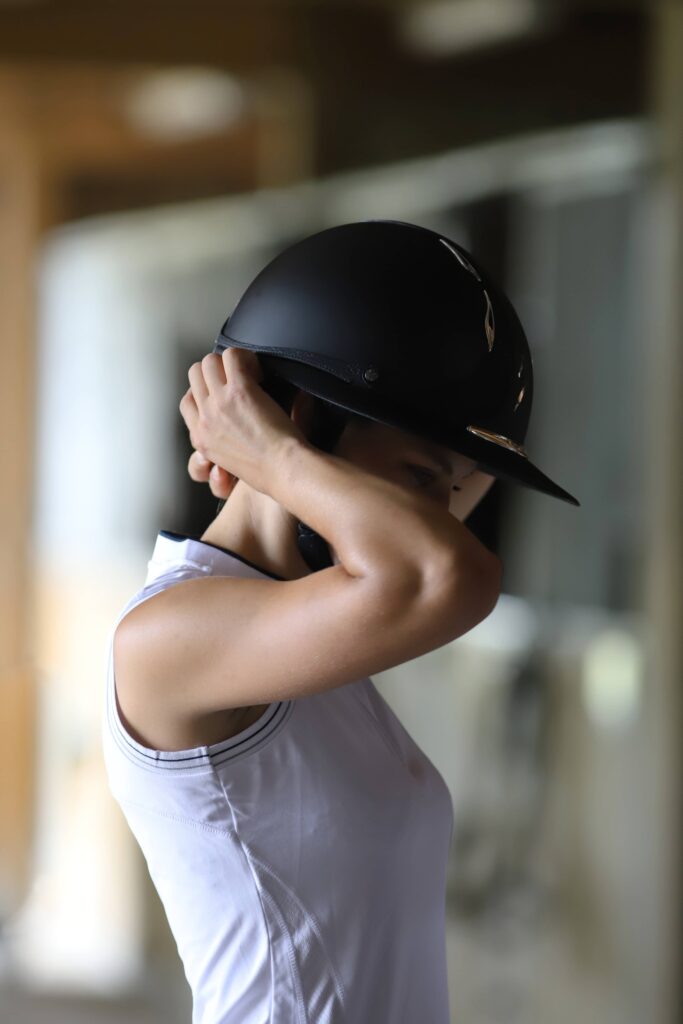
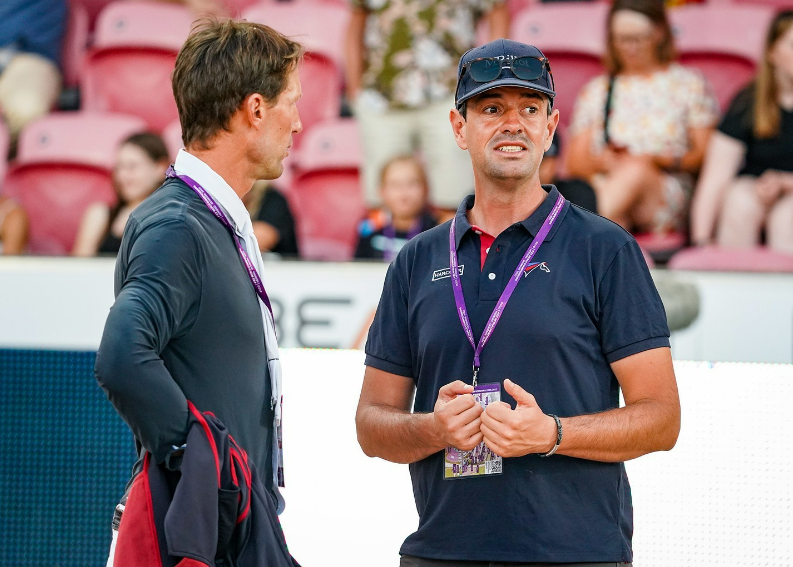
If you want to perform at your best during your competition season, you’ve got to properly prepare for it and focus on the plan that you’ve put in place. Remember, your plan may alter subject to various parameters beyond your control such as bad weather or injuries, etc. Riding requires regular workouts done over and over again if you want to progress. So, you have to set aside the time you need to improve your performance. Competing should remain a highlight. Keep in mind that you can learn more from a four-point round than a poorly executed clear round.
Finally, as well as preparing for your riding competition season, you also need to build in recovery time. Stretching sessions after competitions, walks or spa treatments for the lucky ones are all occasions that help your horse’s well-being and, subsequently, its level of achievement.